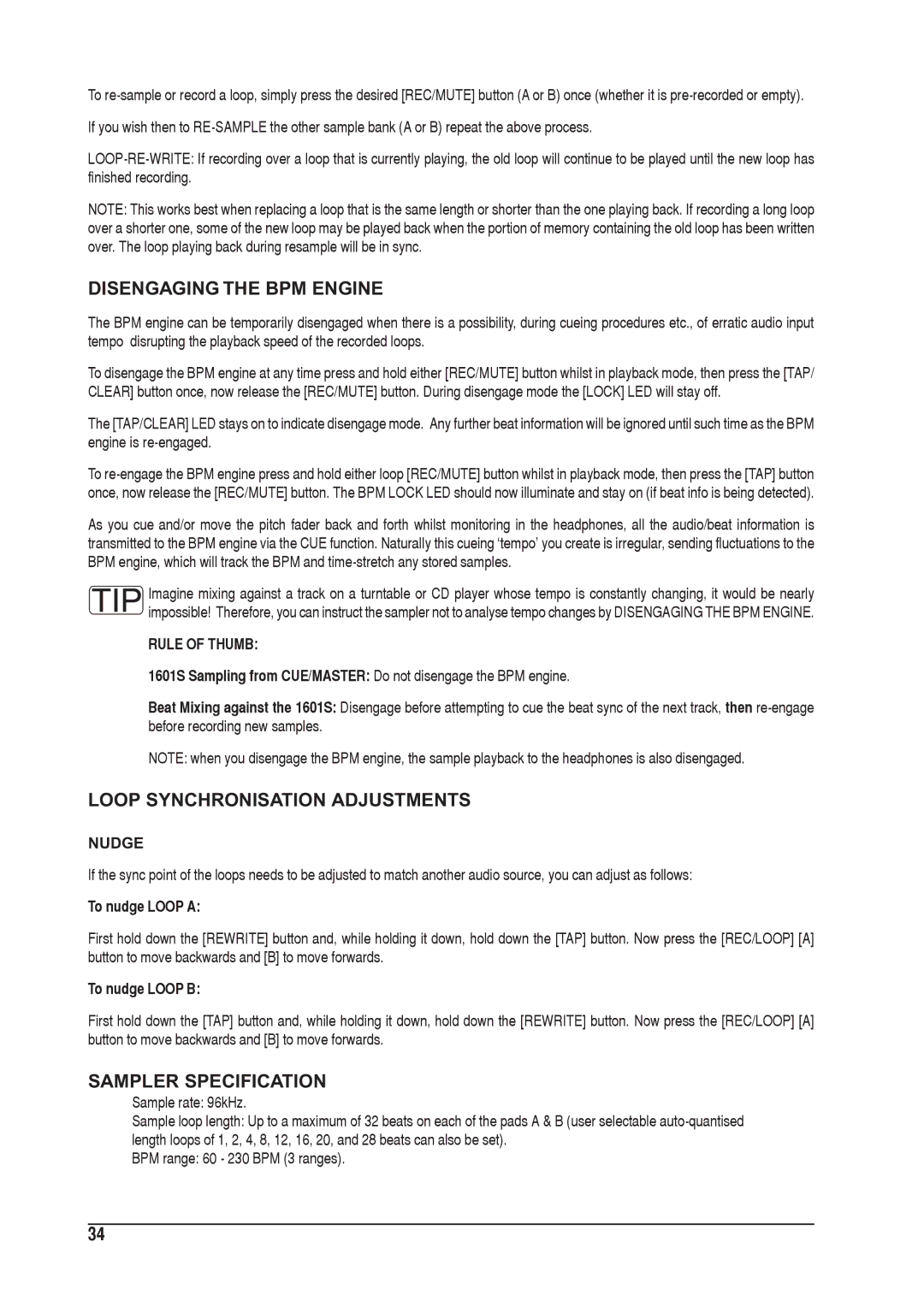
To
If you wish then to
NOTE: This works best when replacing a loop that is the same length or shorter than the one playing back. If recording a long loop over a shorter one, some of the new loop may be played back when the portion of memory containing the old loop has been written over. The loop playing back during resample will be in sync.
DISENGAGING THE BPM ENGINE
The BPM engine can be temporarily disengaged when there is a possibility, during cueing procedures etc., of erratic audio input tempo disrupting the playback speed of the recorded loops.
To disengage the BPM engine at any time press and hold either [REC/MUTE] button whilst in playback mode, then press the [TAP/ CLEAR] button once, now release the [REC/MUTE] button. During disengage mode the [LOCK] LED will stay off.
The [TAP/CLEAR] LED stays on to indicate disengage mode. Any further beat information will be ignored until such time as the BPM engine is
To
As you cue and/or move the pitch fader back and forth whilst monitoring in the headphones, all the audio/beat information is transmitted to the BPM engine via the CUE function. Naturally this cueing ‘tempo’ you create is irregular, sending fluctuations to the BPM engine, which will track the BPM and
Imagine mixing against a track on a turntable or CD player whose tempo is constantly changing, it would be nearly impossible! Therefore, you can instruct the sampler not to analyse tempo changes by DISENGAGING THE BPM ENGINE.
RULE OF THUMB:
1601S Sampling from CUE/MASTER: Do not disengage the BPM engine.
Beat Mixing against the 1601S: Disengage before attempting to cue the beat sync of the next track, then
NOTE: when you disengage the BPM engine, the sample playback to the headphones is also disengaged.
LOOP SYNCHRONISATION ADJUSTMENTS
NUDGE
If the sync point of the loops needs to be adjusted to match another audio source, you can adjust as follows:
To nudge LOOP A:
First hold down the [REWRITE] button and, while holding it down, hold down the [TAP] button. Now press the [REC/LOOP] [A] button to move backwards and [B] to move forwards.
To nudge LOOP B:
First hold down the [TAP] button and, while holding it down, hold down the [REWRITE] button. Now press the [REC/LOOP] [A] button to move backwards and [B] to move forwards.
SAMPLER SPECIFICATION
Sample rate: 96kHz.
Sample loop length: Up to a maximum of 32 beats on each of the pads A & B (user selectable
BPM range: 60 - 230 BPM (3 ranges).
34
